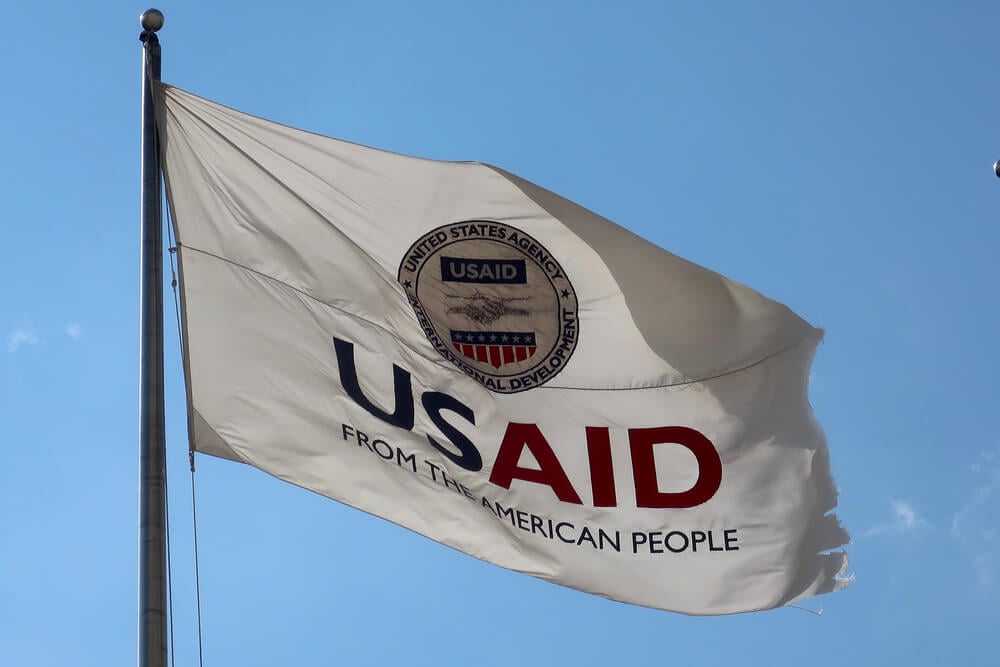There is no easy pathway to safeguarding international aid and global public health in an era when rich donor countries have turned inwards. The message that infectious disease knows no borders has fallen on deaf ears within only a few years of a global pandemic.
Starting in January, the Donald Trump administration has unleashed a slash and burn of not only global aid but also health and research budgets, accompanied by unscientific public health messaging. Together with severe cuts by other Western donors, this amounts to an unprecedented fall in foreign aid.
Now, international officials appear to have overcome their initial shock and are trying hard to reinvent their sector while health experts are assessing the global impact.
David Lammy, UK foreign secretary, has proposed a global conference of the Western community on development and aid to be held this autumn.
Whether the UK will fulfil his ambition to lead such “a long overdue conversation about the future architecture of aid” remains to be seen, given that the UK’s own aid cuts are likely to total around £6 billion annually.
The world’s health is at serious risk, says the World Health Organisation (WHO). “We are living through the greatest disruption to global health financing in memory,” Tedros Adhanom Ghebreyesus, WHO director-general, said on 1 May.
Tropical diseases are re-emerging in some regions fuelled by prolonged conflicts around the world. These include Africa’s “meningitis belt” spanning parts of the sub-Sahara where vaccination had successfully eliminated the disease. But it is easy for people in richer nations to ignore them unless they are directly impacted.
Private philanthropy
Private philanthropy, such as the Gates Foundation, which is the biggest funder of the WHO following a US withdrawal, is unlikely to fill the aid gap.
The foundation, started by Bill Gates and his former wife Melinda, celebrates its 25th anniversary this month and it has been inundated by “panicked requests” from governments, aid groups and scientists for funding since the Trump cuts, says the New York Times.
The foundation has an endowment of $75 billion and it would be one of the top ten bilateral donors if it were a country. In 2022, 20 US foundations spent $8.3 billion on development, according to analysis by the Devex global development news site.
But this pales with the size of the US cuts. On 2 May, the Trump administration announced its budget for the 2026 fiscal year and proposed an almost 48% cut to state and international aid programmes and the rescinding of about $20 billion in funds previously approved by Congress.
The ability of philanthropic organisations to make bigger contributions is in doubt as Trump eyes their tax-exempt status
This would make a total cut of about 84% to the foreign budget while global health alone would see a $6.2 billion reduction.
Furthermore, the ability of philanthropic organisations to make bigger contributions is in doubt as Trump eyes their tax-exempt status.
USAID, the National Institutes of Health (NIH) and the Center for Disease Control and Prevention (CDC) used to fund programmes that were the priorities of the Gates Foundation, including vaccine research for malaria and HIV prevention. Much of this has come to a grinding halt.
We are less prepared to fight disease, hunger, and terror
The WHO, meanwhile, has proposed a 21% cut for its 2026-2027 budget after the US, which had been its biggest funder, pulled out of the global health body.
“The proposed cuts to America’s International Affairs Budget (adjusting for inflation) would bring investments to the lowest level since World War II — turning inward was a mistake then and it’s a mistake now,” Liz Schrayer, president of the US Global Leadership Coalition of businesses and NGOs, said in a statement.
Such a retrenchment is opening the way for China and Russia to replace US influence around the world. Also, “a smaller American footprint abroad means we are less prepared to fight disease, hunger, and terror before they migrate to our shores,” she said.
There will be more deaths unless the administration drops its hesitancy about the measles, mumps and rubella (MMR) vaccine
Even on American shores, the toll on health is apparent. Three people, including two children, have died from measles, and none were vaccinated.
There will be more deaths unless the administration drops its hesitancy about the measles, mumps and rubella (MMR) vaccine, say experts.
Last week, US Health Secretary Robert F Kennedy Jr repeated false claims in an interview that the MMR vaccine contains "aborted foetus debris and DNA particles”.
"Ultimately, they're not going to be able to run from reality," said Peter Marks, who was forced to quit as head of vaccines at the US Food and Drug Administration (FDA) after clashing with Kennedy.
Trump’s “geopolitical vandalism”
Long before the current crisis in global health, aid officials had warned about dependency on Western largesse while some African leaders called for greater self-sufficiency.
Their expertise on the way forward will be crucial to stop people dying around the world from preventable and long-researched diseases.
 Aid funding is not going to be restored to its previous levels anytime soon
Aid funding is not going to be restored to its previous levels anytime soon
Trump’s “geopolitical vandalism” may even prompt low- and middle-income countries to liberate themselves from aid dependency, says Olusoji Adeyi, president of the Resilient Health Systems consultancy in Washington and a former World Bank director.
“The donors have been willing accomplices of African leaders who wax poetic about self-reliance while deriving a large part of their current health expenditure from foreign aid,” he wrote recently.
What is becoming clearer by the day is that aid funding is not going to be restored to its previous levels anytime soon. “The golden age of global health as led by the United States is over,” wrote Peter Singer, a former WHO special advisor. “Greater self-reliance is the path to truly sustainable development.”